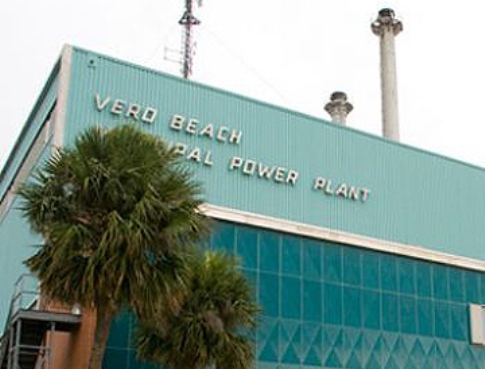
VERO BEACH — The sale of the Vero Beach electric utility to Florida Power and Light has passed the first of several regulatory hurdles, with the Federal Energy Regulatory Commission (FERC) issuing a ruling Monday in favor of the sale.
The ruling came out nearly a week ahead of the 180-day period within which FERC was set to respond to FPL’s April 12 application. At the beginning of the 28-page document, the FERC commissioners collectively state, “We will authorize the Proposed Transaction as consistent with the public interest.”
The bulk of the ruling goes over the background leading up to the sale, the general terms of the sale and any comments or objections that FERC had received from the public, from FPL and from the city. It addresses the items under FERC purview, which center around maintaining the viability of the power grid and transmission lines, and ensuring adequate competition in the electric market among producers and providers of power.
“We also find that FPL has demonstrated that there are no competitive concerns involving the Florida Municipal Power Pool (FMPP),” the ruling states.
The FERC commissioners dismissed objections raised by individual members of the community and by the Indian River Civic Association and its attorney, one-term Vero Beach City Council member Lynne Larkin, who served from 2003 to 2005 and is most famous for protesting a benefit concert by music superstar Gloria Estefan to help Vero Beach victims of the 2004 hurricanes. Larkin also mounted a protest to the FPL sale saying she didn’t agree with the terms of the sale or the process by which the city engaged in exclusive talks with FPL.
Councilman Jay Kramer, a staunch opponent of the sale, had also filed a formal opposition paper to FERC supporting Larkin’s theories, a move which was derided by Vero Beach Utilities Advisory Commission Chair Scott Stradley as a potential breach of the city’s commitment to FPL to pursue regulatory approvals of the sale in good faith.
FPL currently serves nearly 5 million customers and has a service territory which nearly surrounds the Vero Beach territory, with the north barrier island and western Indian River County both already being part of FPL’s system.
Throughout the process, city officials stated that they considered FPL the “natural buyer” of the system due to this proximity of their service area and FPL’s size and substantial resources.
Published monthly statewide rate comparisons show that FPL has the lowest residential electric rates in the state of Florida. Currently, Vero Beach electric rates are 40.4 percent higher than FPL, inclusive of the Oct. 1 rate increase implemented by the Vero Beach staff without the necessity of approval from the city council. The FERC ruling points out that, after consummation of the sale to FPL, rates and rate increases would need to be approved by the Florida Public Service Commission before implemented.
In the document, FERC comments on the $111.5 million cash price FPL has agreed to, plus the other considerations which up the value of the deal to $179 million.
“FPL points out that it has agreed to pay more than the net book value of the Vero Beach utility assets that it is acquiring,” but FERC reiterated in the ruling that FPL would not be permitted to pass along any kind of a surcharge to recoup those dollars.
The sale must still be approved by the Florida Public Service Commission when the terms are final. Before terms can be finalized, a deal still needs to be hammered out between FPL and the Florida Municipal Power Agency power co-op regarding the disposition of the city’s power “entitlements,” which are the rights to purchase wholesale power from the St. Lucie nuclear plant and the Stanton 1 and Stanton 2 coal-generation plants owned by the Orlando Utilities Commission.
Though FPL proposed some new terms on Aug. 20 to address the objections of the FMPA and gave the FMPA until Sept. 20, and then until Sept. 30 to respond, the FMPA missed both of those deadlines. FPL officials state that they hope to have an answer back from the FMPA in the next week or two.
Until the FMPA responds, negotiations are stalled and the deal cannot move forward.
Due to this time delay, required votes on amendments to the city’s Sale and Purchase Agreement with FPL will all but certainly need to come before a new city council after the Nov. 5 election, thereby making candidates’ positions on the sale to FPL a major campaign issue in the fifth consecutive Vero city election.
Legal experts have opined that council members are not necessarily legally bound to vote in favor of the amendments, especially if they represent material changes, but that the city did agree to a “good faith” clause.
Voters have elected proponents of the sale to FPL in the 2009, 2010, 2011 and 2012 elections and have also voted nearly 2 to 1 in two separate referendums in favor of selling the Vero Beach electric utility to FPL.



